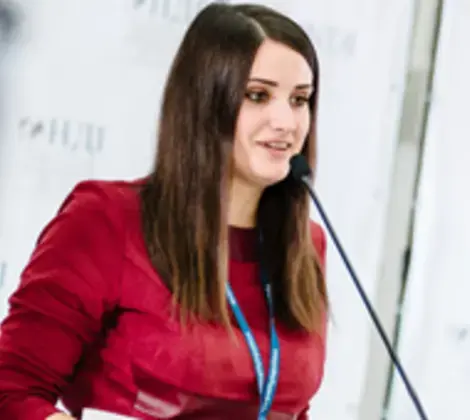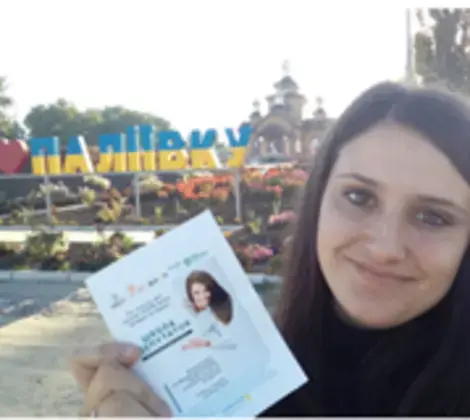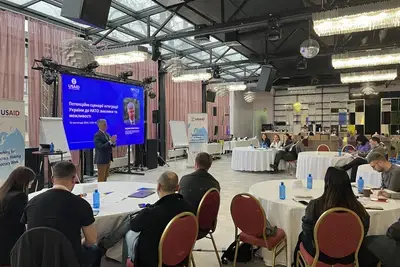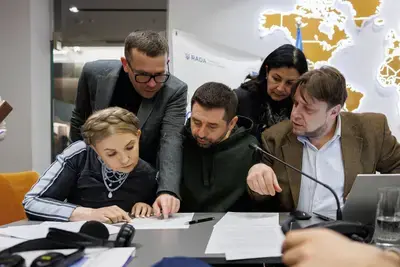
Success Story
Alumna of Women’s Leadership Academy drives change by empowering others
In Ukraine, women remain underrepresented at all levels of governance and local decision making, as well as continuing to face significant obstacles to gender equality in other spheres. Training opportunities for women are essential to empowering more women to run for office and creating strong networks of women leaders who are willing to make an impact in their communities.
I’m ready to run for office. And what makes me happy is that I will have a team of supporters. Even if I am the only one who runs, I will definitely have a team that will help me win.
Maryna Matkovska

Communities, and funded by the United States Agency for International Development (USAID).
As Maryna explains, “It all starts from the readiness to take responsibility for yourself, your family, your community.” After facing unfair treatment at her workplace when applying for a leadership position which required approval from a local council, she decided it was time to become a councilor. Noting that the majority of councilors in Malovyskivska are former businessmen, Maryna decided that the council should include more women. For more women to win seats, women would need training and support to run for office. That is where NDI stepped in.

In addition to training sessions, participants attended parliamentary hearings on the prevention of discrimination against women representing vulnerable groups. “Previously we saw the plenary hall on TV only and now we could sit in the chairs of members of parliament. It was important for empowering those women so they could realize they should not limit themselves to local elections,” says Maryna. The project helped foster a sense of support and solidarity among the participants. For Maryna personally the project became a tool for women’s empowerment and forming a network of women leaders. “The School of Women Councilors taught me to do a bit more than I can. I learned how to set big goals. I learned to do more than my best,” recounts Maryna.
As a result of the training program Maryna developed, 14 of 20 participants indicated their willingness to run in local elections, which gives hope for achieving the goal of a more equal council in the Malovyskivska community.



